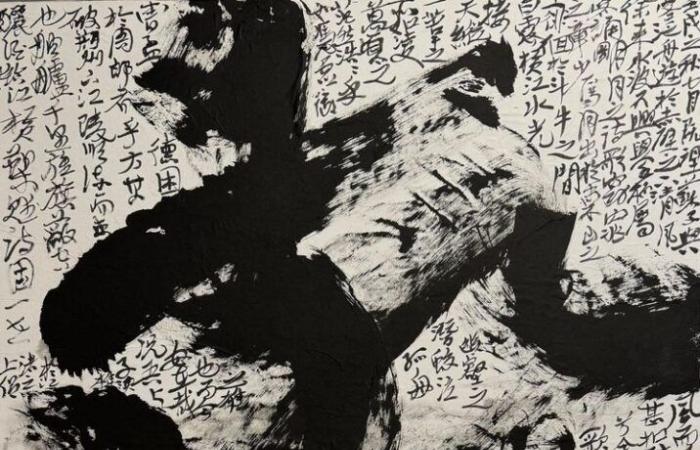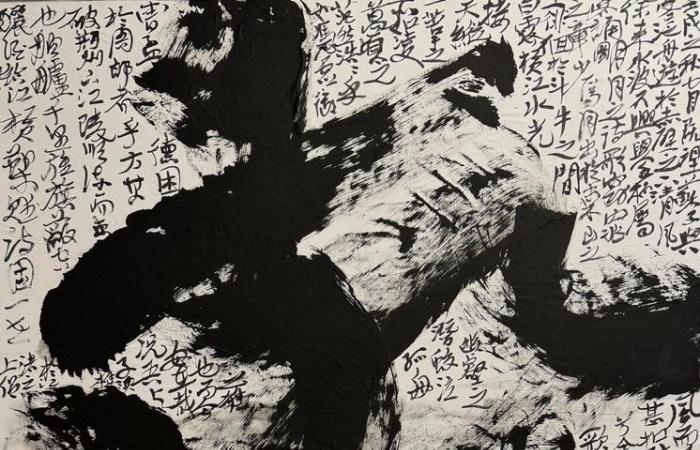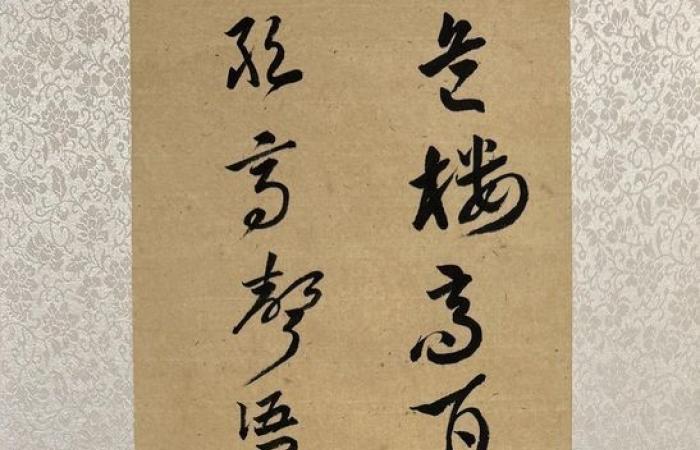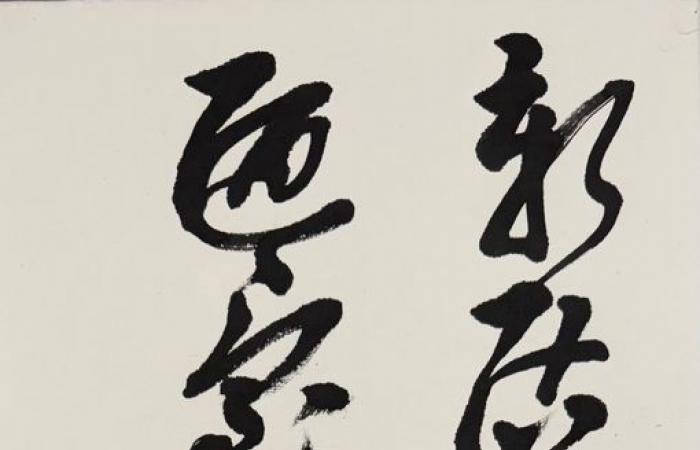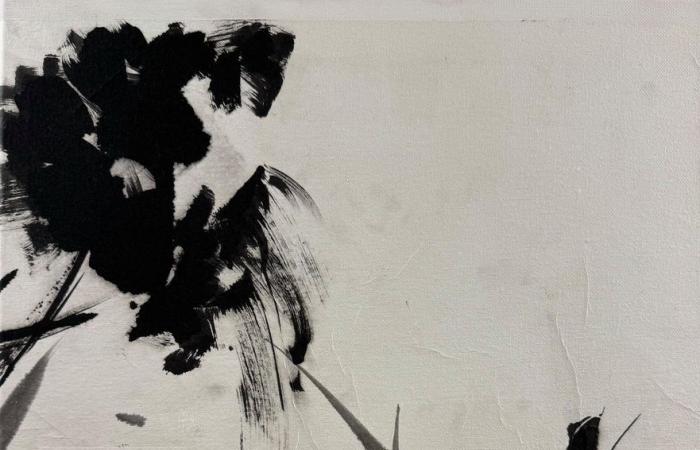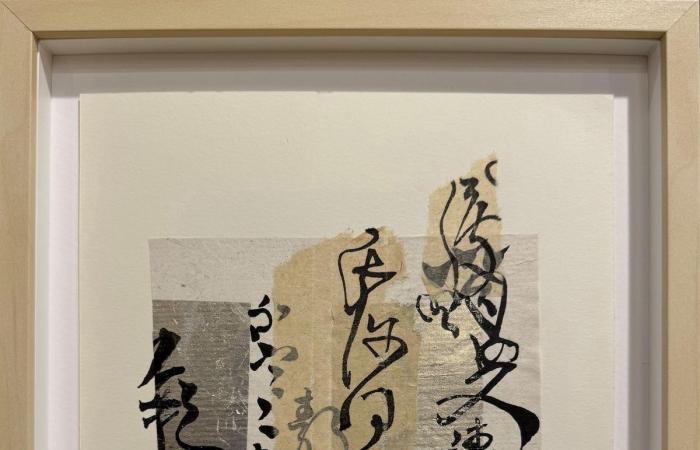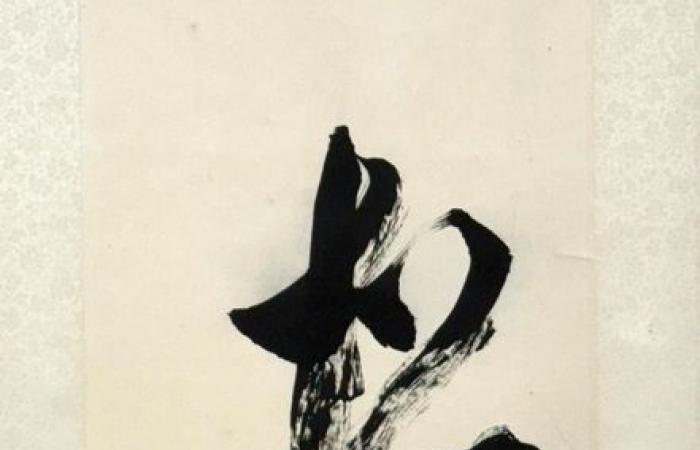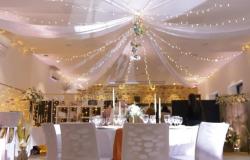Hanging on Acacias –
Chinese calligraphy is exhibited at the Chapelle des Arts
Under the leadership of Wang Fei, founder of the Mandarin Fish School in Geneva, a group of artists presents works between tradition and contemporaneity.
Published today at 11:23 a.m.
A work by Wang Fei, shot through with great energy.
WANG FEI
Subscribe now and enjoy the audio playback feature.
BotTalk
On the court side, these aces of the brush are doctors, teachers, musicians, bankers, psychologists and even winegrowers. But their passion for Chinese culture has led them, on the garden side, to practice with as much passion as assiduity the age-old art of calligraphy – for some for more than thirty years. Led by their master, Wang Fei, founder in 1999 of the Poisson mandarin in Plainpalais, this group of artists from the region exhibits their recent creations at the Chapelle des Arts.
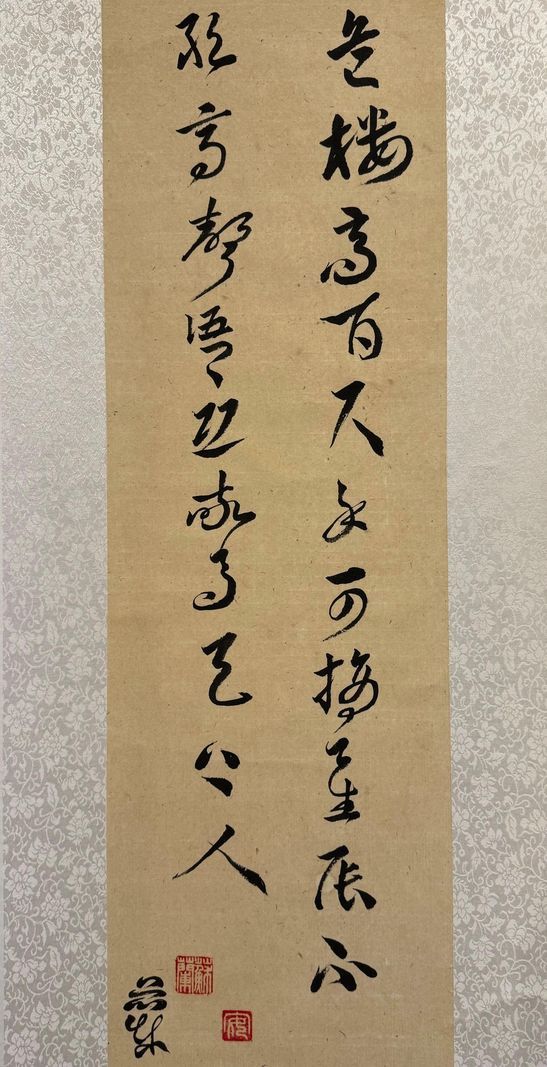
For Suzanne Graf, “the practice of calligraphy has become a quest, a great journey gradually transforming into an inner journey,” as she explains in a catalog published in 2024.
WANG FEI
Entitled “The Suspended Gesture”, this hanging brings together works on scroll, canvas and paper, mixing traditional and contemporary styles. The title of the presentation refers to the very essence of this ancestral know-how of writing: the movement which imprints its dynamics and rhythm on the line. “The work of the gesture in three dimensions determines the result on the two dimensions of the sheet or the painting,” explains Wang Fei, who is also a lecturer in the Department of East Asian Studies at the University of Geneva.
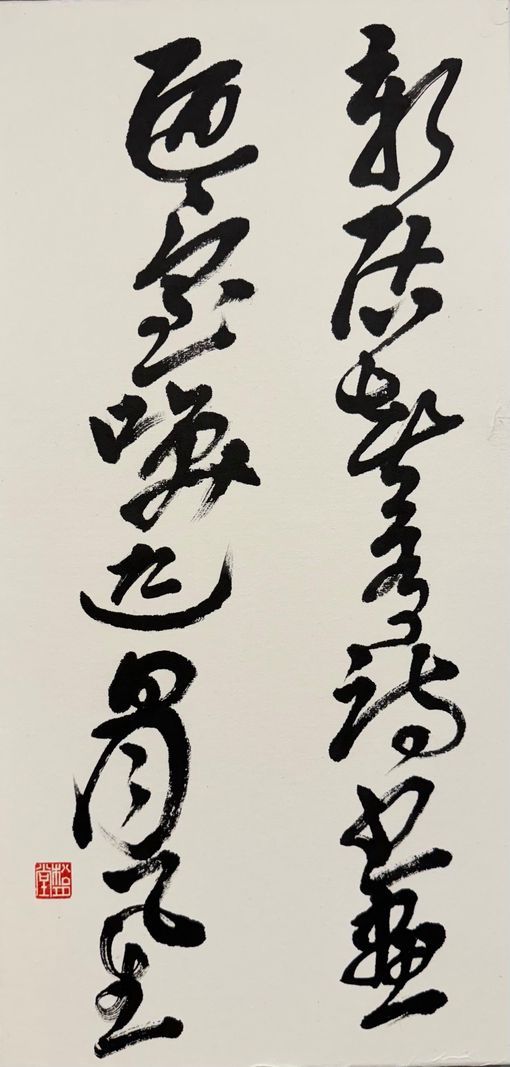
Martine Bairoch wrote: “The pine waves gradually calm down, and the mountain moon is bright but not cold.”
WANG FEI
Educate your brush
According to the expert born in 1964 in the province of Henan, it is a question of “educating your brush, which deforms when it reaches a surface, by learning to direct its tip in the air”. A basic technique that is acquired in one or two years of practice. Once we have mastered beautiful, “careful and clean” writing, we can give free rein to our emotions, our feelings and our personality: calligraphy then becomes, through the arm and the hand, an extension of the mind.
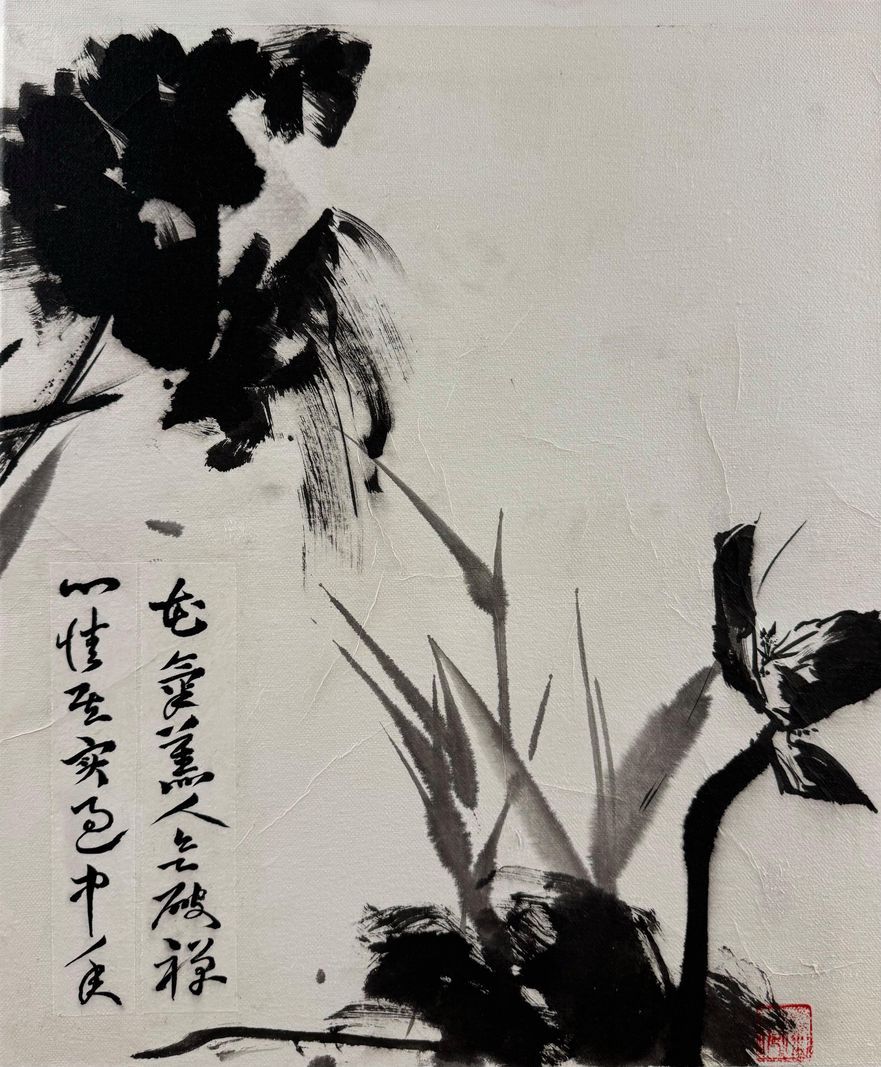
Maria Dabrowski married drawing and characters.
WANG FEI
Because if this art is part of a 3,500-year-old tradition, it can take very current forms, especially in Europe. “Here we go further, we are more focused on the future. People are creative and express themselves freely,” explains Wang Fei, adding that the exhibitions he organizes annually in China with his Swiss students are very successful: “Their thinking has great freshness, it is very touching for us Chinese.”
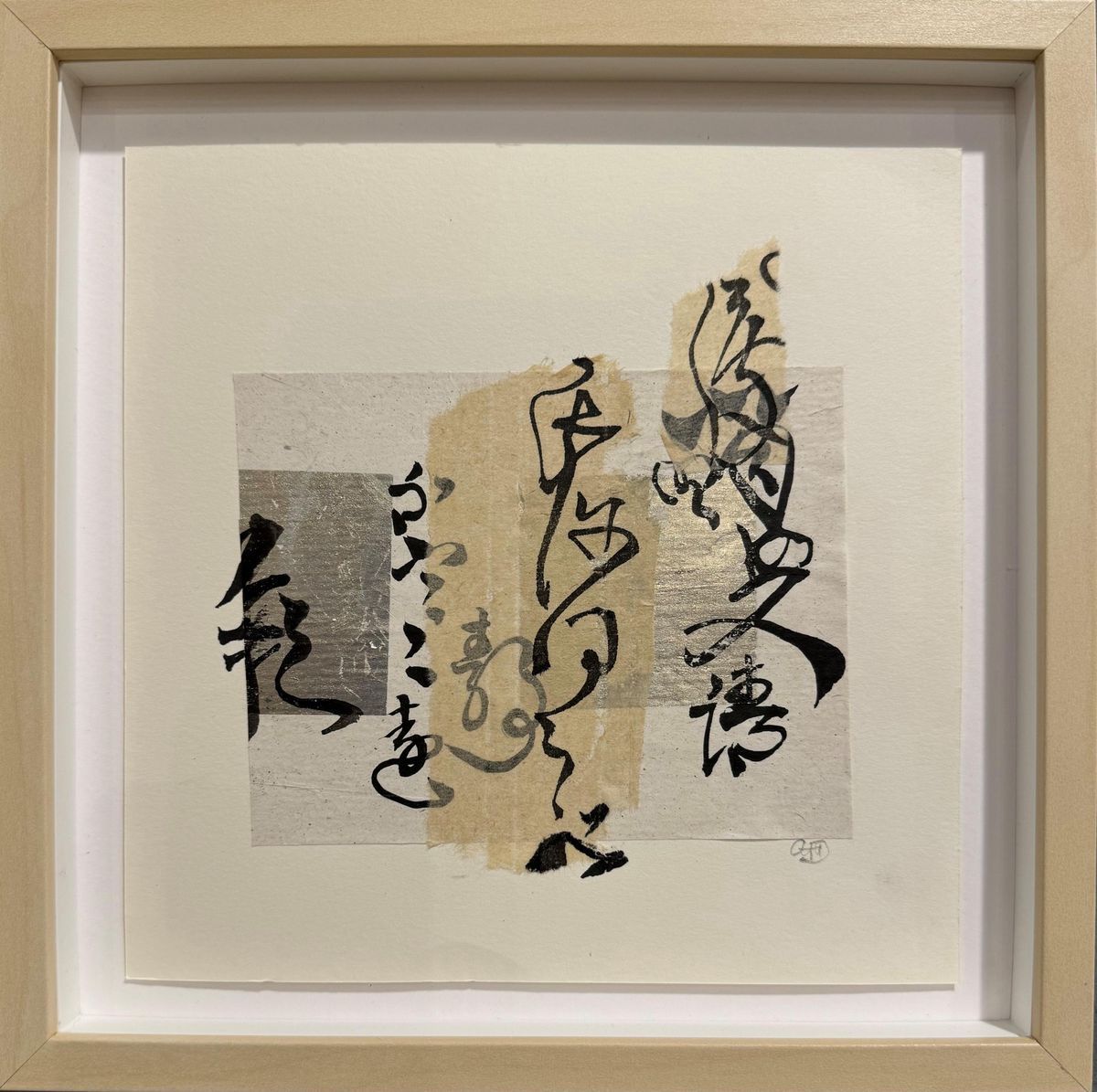
Some artists, such as Annie Fayolle Dietl, use calligraphy as a pictorial grammar.
WANG FEI
To the Chapel of the Artssome artists are Chinese speakers and themselves composed the poems that they put on paper, while others focused on reproducing classical characters. Still others chose to express themselves through drawing or composed pieces using calligraphy as a pictorial grammar. They all demonstrate great expressive enthusiasm, combining their Western culture with erudition from a distant civilization and times.
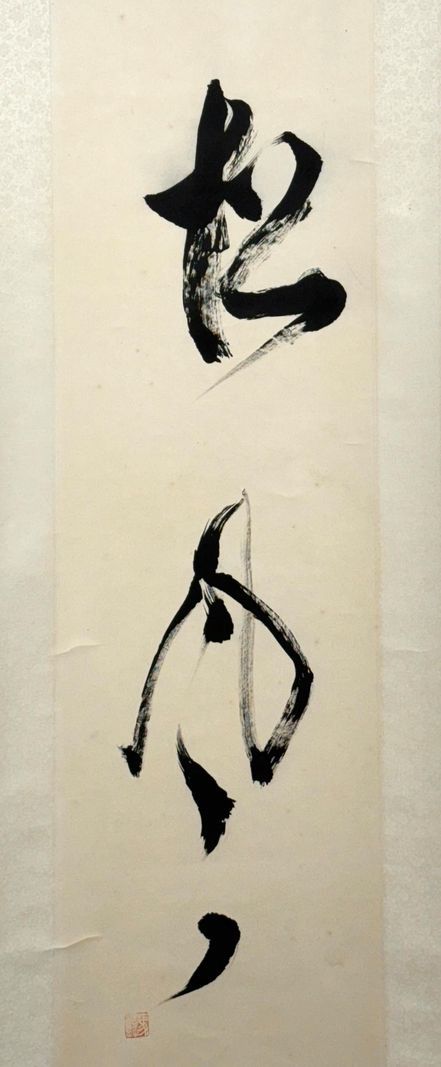
Madeleine Bollmann has been studying calligraphy with Wang Fei for fourteen years.
WANG FEI
Until November 24 at the Chapelle des Arts, 21, rte des Acacias. Thu-Fri 2:30 p.m.-6:30 p.m., Sat-Sun 2 p.m.-6 p.m. Demonstration by Wang Fei Sat Nov. 16 from 3 p.m. to 4 p.m.
Did you find an error? Please report it to us.
0 comments

